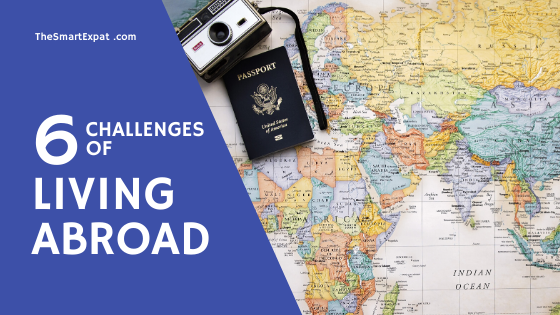When you’re living or traveling overseas, speaking the local language is helpful. But, if you don’t know the language before you arrive, you might have trouble figuring out which approach is best for learning it. It isn’t easy to learn a new language abroad, so you want to choose a direction that is most likely to lead to success.
Luckily, a few options are strong contenders. If you need to learn a new language abroad, here are six ways to go about it.
6 Great Ways to Learn a New Language Abroad
1. Practice with Native Speakers
One of the best ways to learn a new language abroad is to practice your skills with locals. Whenever you go out shopping, need directions, order at a restaurant, or otherwise interact, do your best to use the language you’re trying to learn.
Native speakers are most familiar with how the language is spoken and structured. You can learn nuances that you may otherwise miss through traditional instruction, including slang or regional dialects.

2. Watch Local Children’s Television
If you’re looking for an option that can help you nail the fundamentals of a new language while living or traveling abroad, children’s television is a great place to start. The language tends to be simpler since the content is geared towards kids.
If you can find shows with educational elements, like the equivalent of Sesame Street, then you might get direct instruction. This can be particularly beneficial if the show has small exercises to cement a concept, even if it’s just a simple “repeat after me” approach.
3. Ask a Friend to Tutor You
Once you’ve made a few friends locally, see if they would be open to tutoring you. This could be a formal process where they walk you through various aspects of the language if you want something structured. However, it could be more casual. Simply getting together to have conversations can help, particularly if you make it clear that you welcome constructive criticisms, tips, or other forms of guidance.

4. Head to the Library
Your local library can be a valuable resource when you want to learn a new language abroad. You can find books at a range of reading levels, for a start. Additionally, there may be language textbooks available, allowing you to learn just as local students do.
In some cases, you might be able to get your hands on audiobooks. This is a great approach for enhancing your listening-oriented skills. You’ll get used to hearing the language spoken to you, all while being able to enjoy a fun story.
5. Take a City or Museum Tour
City tours are great ways to get to know the local area. By finding one offered in the country’s native language, you can find out about the town and enhance your language skills. Not only will the guide be speaking the language you’re trying to learn, but you may have to speak it if you have questions.
The same goes for museum tours in the native language. You’ll make what’s already a learning experience into something more, and it can be an excellent approach for honing your capabilities.
Usually, you’ll only want to go this route if you have a strong foundational understanding of the language. Otherwise, it may be more frustrating than enjoyable.
But, if you are working to take your skills to the next level, it can be a great choice. It adds an entertainment aspect to the experience, and that can make it better overall.

6. Avoid Speaking Your Native Language
Many countries are filled with multi-lingual people. There may be a surprising number of people who are more than happy to speak to you in your native language. Some may even request it, hoping to practice their skills on you.
While this may seem like a relief, it may hinder you if you’re trying to learn a new language abroad. You won’t be as dedicated to the learning process if you can default to your native tongue regularly. As a result, you might want to avoid it as much as possible, if not entirely. That way, your survival is somewhat dependent on your ability to pick up this new language, creating a sense of urgency that can propel you toward success.
Bonus Tip: How to Beat the Stress When You Learn a New Language Abroad
Whenever you’re trying to learn a new language, there are going to be some hiccups. You may forget or mispronounce a word. At times, you may even say something that doesn’t make sense to the listener, all without knowing you’ve made a mistake. Overall, this can be very frustrating and potentially anxiety-inducing.
If you want to make sure that you can beat the stress as you learn a new language, the most important step is to avoid being overly hard on yourself. You’re doing something challenging, and mistakes are inevitable. In most cases, people will appreciate your effort above all else. Plus, many who speak the language natively will easily fill in the gaps or help you express yourself, especially if they know you are trying.
When you run into issues, pause and take a deep breath. The world won’t come to an end just because you need a moment to collect your thoughts. If necessary, let the person you are talking to know that you are trying to remember the words that enable you to express yourself properly. If you’ve made a mistake, apologize and mention that you’re still learning. It could even be a good move to laugh a little, especially if your misstep was accidentally humorous.
You’re doing your best, and that’s what matters. So, keep working on it and use the new language often. With time, you’ll get the hang of it.
















